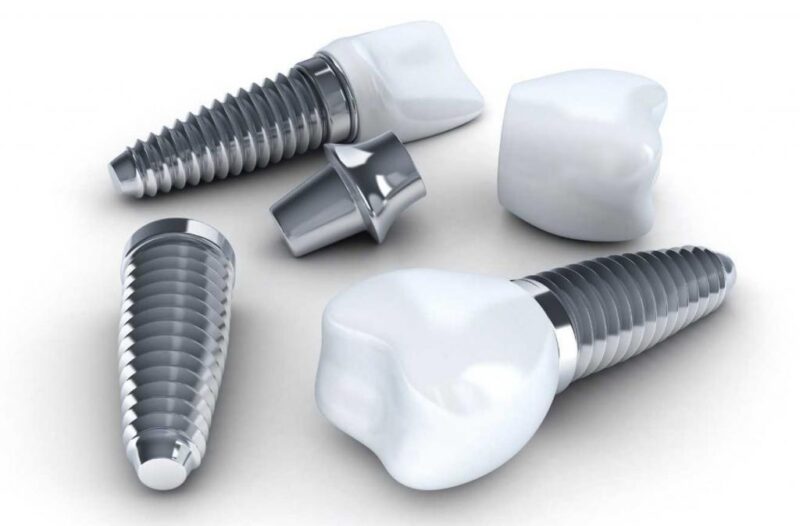Smiling is a universal language that conveys warmth, happiness, and confidence. However, not everyone is blessed with a perfect set of teeth, and this can affect one’s self-esteem and overall quality of life. Traditionally, those with missing or damaged teeth had limited options for restoration, but with the advent of dental implant technology, the game has changed. Dental implants are a revolutionary solution that offers a permanent and natural-looking replacement for missing teeth. They have transformed the way people approach dental care, providing a viable alternative to traditional dentures and bridges. In this article, we will explore how dental implant technology is revolutionizing smiles and changing the game in the field of dentistry. We will dive into the benefits, process, and advancements in dental implant technology that are making it a game-changer for those seeking a long-lasting, beautiful smile.
Benefits of Dental Implants over Traditional Dentures
While traditional dentures and bridges have been popular options for replacing missing teeth for many years. Dental implants offer several benefits over these options. Here are some of the benefits of dental implants:
✪ Improved Comfort: Dental implants are permanently anchored into the jawbone, which provides a more stable and comfortable fit compared to removable dentures or bridges.
Better Functionality: Because dental implants are anchored directly into the jawbone. They function like natural teeth, allowing for better chewing and speaking abilities compared to dentures or bridges.
✪ Long-lasting: With proper care, dental implants can last a lifetime. While traditional dentures and bridges may need to be replaced every few years.
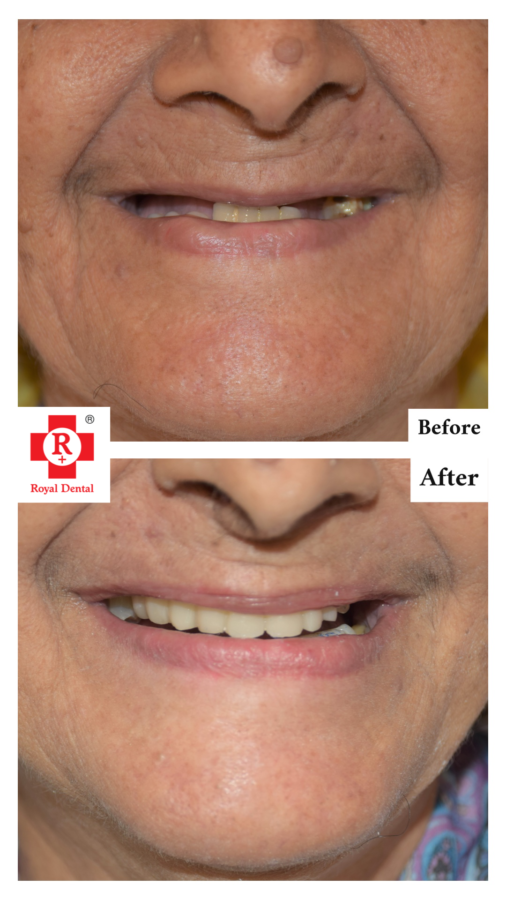
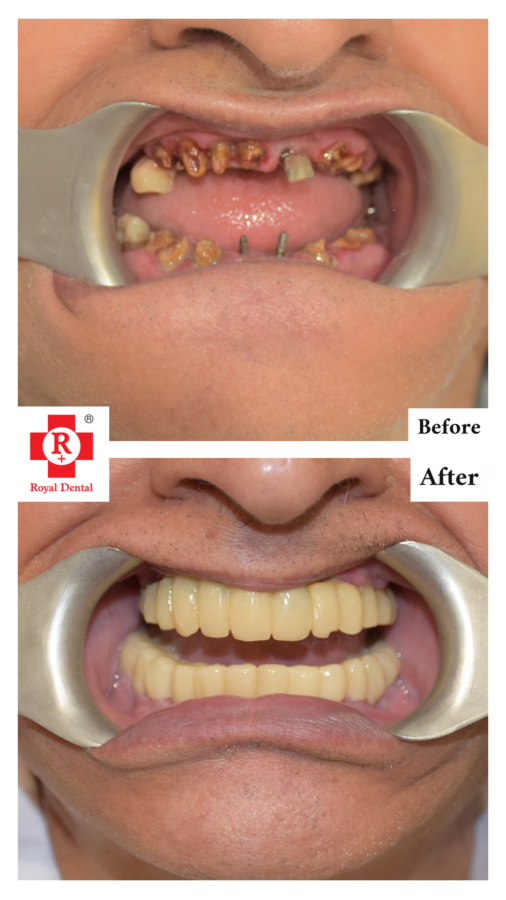
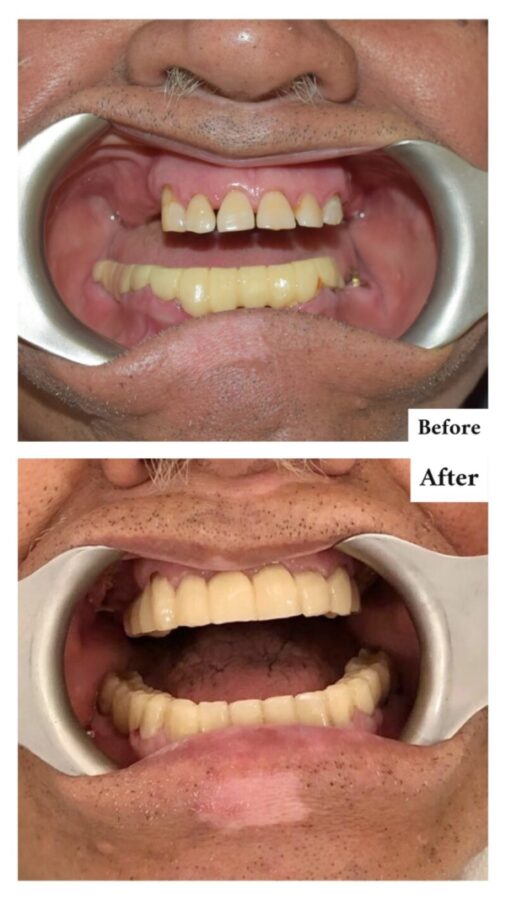
Preservation of Natural Teeth: Dental implants do not require any support from neighboring teeth. Which means that adjacent teeth are not affected or damaged during the procedure, as can be the case with bridges.
✪ Improved Oral Health: Because dental implants do not rely on support from neighbouring teeth, they help to preserve the jawbone and prevent bone loss, which can occur with traditional dentures or bridges.
Aesthetically pleasing: Dental implants look and feel like natural teeth, which can improve the patient’s confidence and self-esteem.
✪ Convenient: Dental implants do not require any special care or maintenance. Making them a convenient option for patients with busy lifestyles.
Dental Implant Process | Technology
Consultation: The first step is to schedule a consultation with a dentist who specializes in dental implants. During the consultation, the dentist will evaluate the patient’s oral health, take x-rays or CT scans to assess the jawbone and determine if the patient is a good candidate for dental implants.
Treatment Plan: Once the dentist determines that the patient is a good candidate for dental implants, they will develop a treatment plan.
Implant Placement: The next step is to place the implant in the jawbone. The dentist will create surgical guide to plan the procedure. Once the implant is in place, the dentist will then take an intra oral impression.
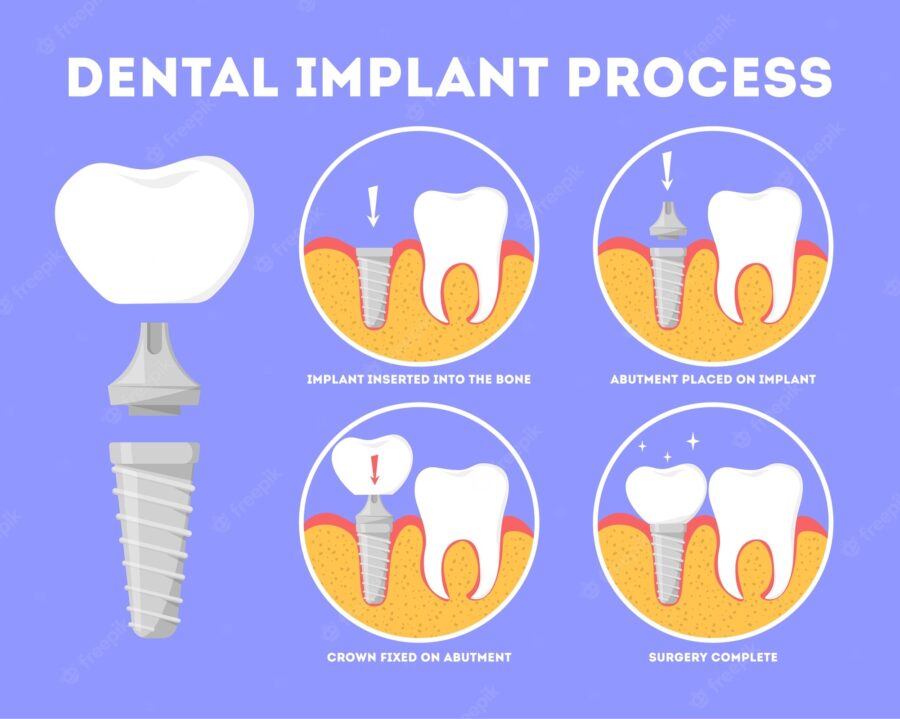
Prosthetic Placement: Finally, the prosthetic tooth or crown is placed on top of the abutment on the same sitting. The prosthetic will be custom-made to match the patient’s natural teeth and ensure a comfortable and natural-looking result.
Aftercare: After the dental implant procedure is complete, the patient will need to take care of the implant and surrounding gum tissue to ensure proper healing. This includes regular brushing and flossing, as well as regular check-ups with the dentist to monitor the implant and surrounding oral health.
Overall, the dental implant process can take several months from start to finish, but the result is a permanent and natural-looking replacement tooth that can improve oral health and quality of life.
Advancements in Dental Implant Technology
Dental implant technology has come a long way in recent years, with the advent of 3D printing and digital planning providing new tools and techniques for dentists to place implants more accurately and efficiently. Here are some of the key advancements in dental implant technology:
3D Printing: 3D printing has revolutionized the manufacturing process for dental implants, allowing for more precise and customized implants to be created. This technology allows dentists to create 3D models of a patient’s teeth and jaw, which can then be used to create an implant that fits perfectly.
Digital Planning: Digital planning tools such as cone beam computed tomography (CBCT) scans and intraoral scanners allow dentists to visualize the placement of implants in 3D, helping to ensure accurate placement and reduce the risk of complications.
CAD/CAM Technology: Computer-aided design and manufacturing (CAD/CAM) technology allows for the creation of custom implant abutments and prosthetics, which can be designed and manufactured in-house using digital scanning and milling machines. This reduces the need for multiple appointments and enables a more efficient and precise treatment process.
Advancements in Dental Implant Technology
Shorter Treatment Times: Advances in implant design and placement techniques have led to shorter treatment times, with some implants now able to be placed and restored in a single appointment. This not only saves time for patients but also reduces the risk of complications associated with longer treatment times.
Improved Materials: The materials used in dental implants have also improved in recent years, with new materials such as zirconia and titanium alloys providing greater strength and durability. These materials also offer better biocompatibility, reducing the risk of rejection or infection.
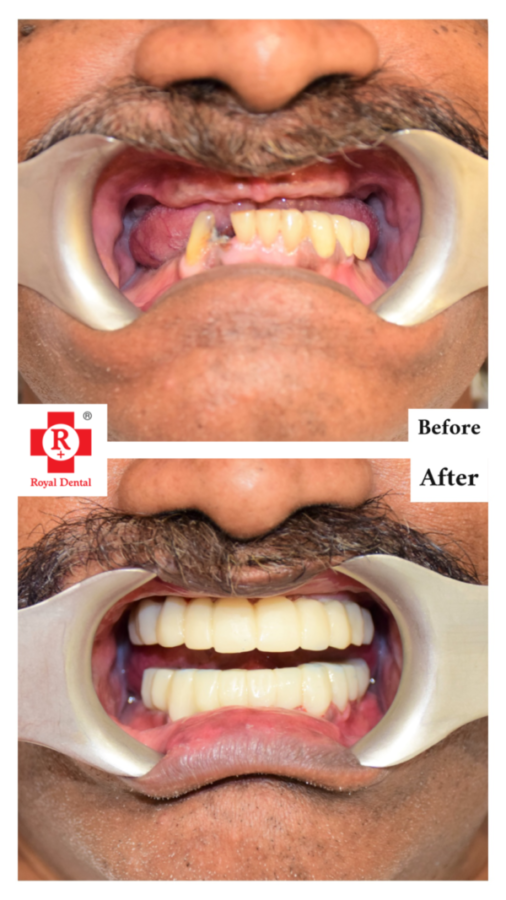
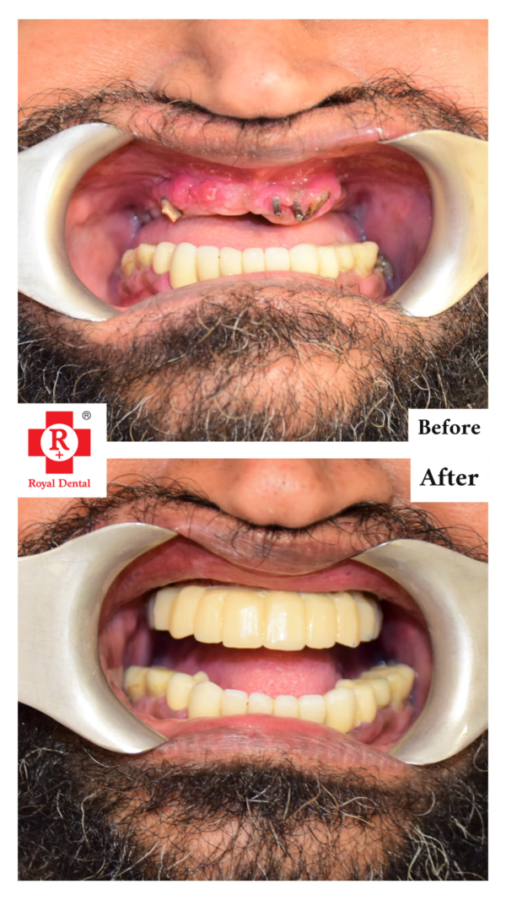
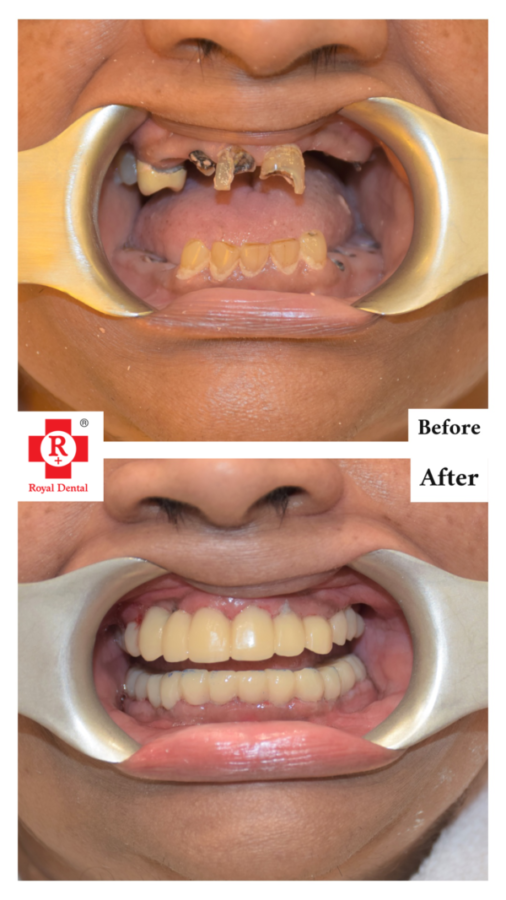
Overall, these advancements in dental implant technology have improved the accuracy, efficiency, and safety of dental implant placement, making it an increasingly popular and effective option for restoring missing teeth.
Success Rates and Long-Term Efficacy of Dental Implants
One of the most important factors to consider when choosing dental implants is their success rates and long-term efficacy. According to the American Academy of Implant Dentistry, dental implants have a success rate of over 95%, making them one of the most reliable and long-lasting solutions for missing teeth.
The long-term efficacy of dental implants depends on several factors, including proper aftercare and maintenance. It is important to follow your dentist’s instructions for cleaning and caring for your implants, as well as attending regular check-ups to ensure that they are functioning properly.
Overall, dental implants have a proven track record of success and longevity. Making them an excellent investment in your oral health and quality of life.
Cost and Insurance Coverage for Dental Implants
One of the main concerns that people have about dental implants is their cost. While dental implants are more expensive than traditional dentures and bridges. They offer many advantages that make them worth the investment. The cost of dental implants can vary depending on several factors. Including the number of implants you need, the complexity of the procedure, and your geographic location.
It is important to discuss the cost of dental implants with your dentist. As they may offer financing options or payment plans to help make the procedure more affordable. Additionally, some dental insurance plans may cover the cost of dental implants. So it is important to check with your provider to see if you are eligible.
While the cost of dental implants may seem daunting at first. It is important to consider the long-term benefits that they offer, including improved oral health, enhanced quality of life, and increased self-confidence.
Frequently Asked Questions about Dental Implants
How long do dental implants last?
Dental implants can last for many years with proper care and maintenance. They are designed to be a long-lasting solution for missing teeth, and many people have had their implants for decades with no issues.
Are dental implants painful?
The implant surgery itself is typically done under anesthesia, so you should not feel any pain during the procedure. However, you may experience some discomfort or soreness afterward, which can be managed with over-the-counter pain medication.
How long does the implant process take?
The implant process can take several months from start to finish, as it involves several stages of treatment. The exact timeline will depend on your individual case and treatment plan.
Can anyone get dental implants?
Not everyone is a good candidate for dental implants. You must have a healthy jawbone and gums, and be in good overall health to undergo the procedure. Your dentist will assess your suitability for implants during a consultation.
How do I care for my dental implants?
Caring for dental implants is similar to caring for natural teeth. You should brush and floss regularly, avoid hard or sticky foods, and attend regular check-ups with your dentist.
Choosing the Right Dental Implant Provider for Your Needs
Choosing the right dental implant provider is essential to ensure a successful and long-lasting outcome. When choosing a provider, it is important to consider their experience, qualifications, and reputation. Look for a provider who specializes in dental implants and has a proven track record of success.
You should also consider the provider’s approach to patient care, including their communication style, aftercare support, and overall patient experience. It is important to choose a provider who makes you feel comfortable, informed, and supported throughout the entire process.
Case Studies: Successful Tooth Implant Procedures
There are countless success stories of people who have transformed their smiles and their lives with dental implants. Here are some examples of real-life case studies and patient testimonials:
“I live in the heart of Mumbai, but I went to Dr. Chamria in Malad since I had heard he was the best implant dentist in the city. And I have had nothing but the greatest follow-up care since “. Patients like him, who return time and time again because they know they can put their faith in the professionals at Royal Dental Clinics, are a big reason why the practise is so successful.
Here’s another happy customer who received her One Day Implants at Royal Dental Clinics in Mumbai. And she has nothing but praise for the staff there. From the mouths of our patients: “I have been going to Royal Dental Clinics for the last 15 years. At Royal Dental Clinics, I was able to have my first dental implant. My implant procedure just took a single day. The procedure went off without a hitch. The care I received was excellent, and I couldn’t be happier. If anybody I know needs a Genuine One Day Treatment, I’ll be sending them to Royal Dental Clinics.“
Conclusion
Dental implant technology has come a long way in recent years. And the future looks bright for this revolutionary solution for missing teeth. Advances in materials, techniques, and equipment are making the procedure more precise, efficient. And effective, and are helping to improve the overall patient experience. As more people discover the many benefits of dental implants, we can expect to see a shift in the way people approach dental care. Dental implants offer a permanent and natural-looking solution for missing teeth that can improve your quality of life in many ways. If you are considering dental implants. It is important to choose a qualified and experienced provider who can guide you through the process and help you achieve the smile of your dreams.

